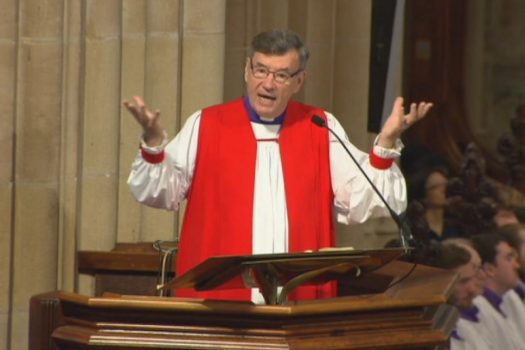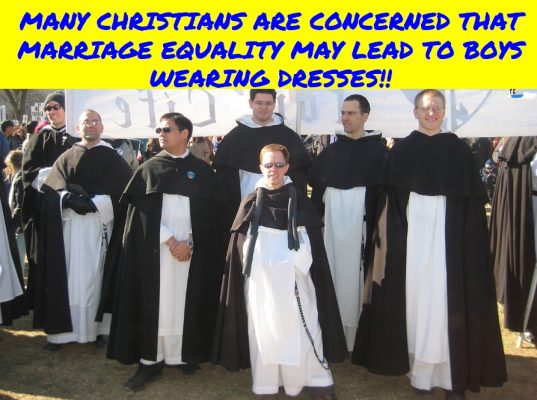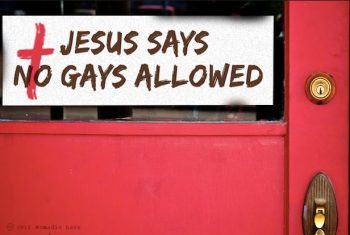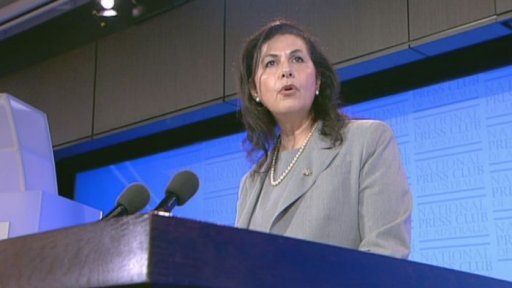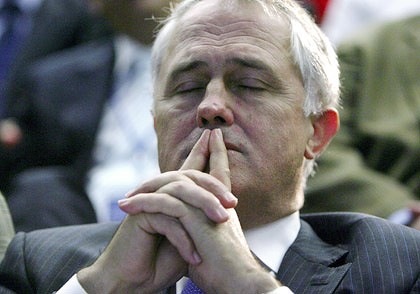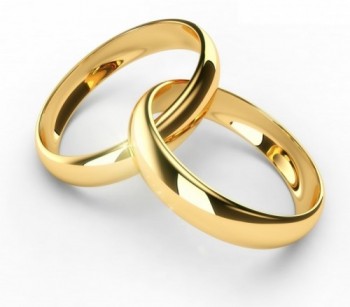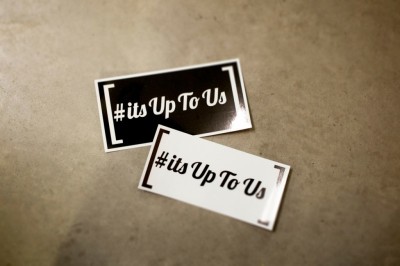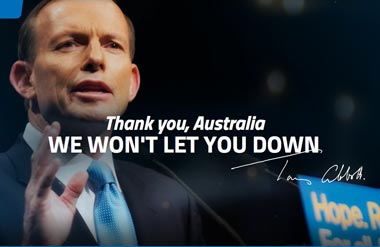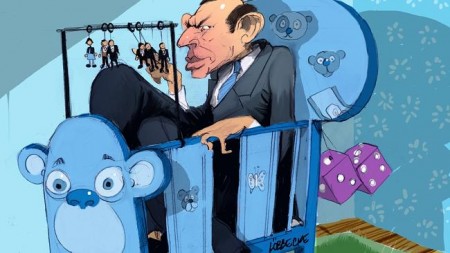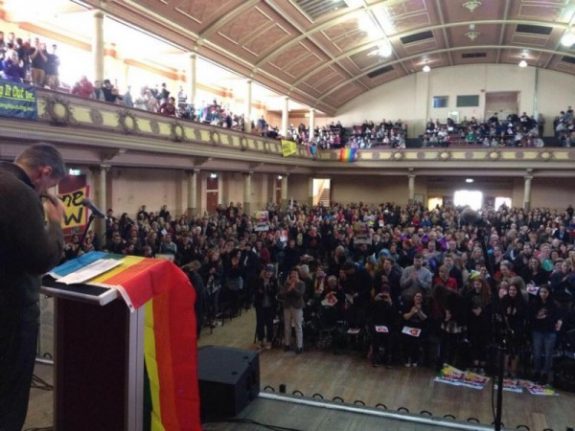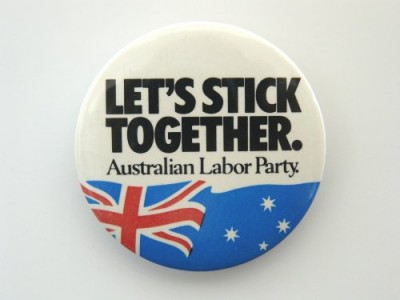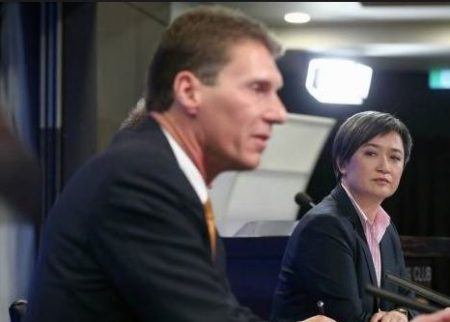As a self confessed social media junkie and one who believes qualitative analysis is damn sexy; reading the marriage equality debate online across many forums has been like the moment Augustus Gloop saw Willy Wonka’s river of chocolate. Here is Augustus standing at the edge of this stream of endless deliciousness and excitement – the best thing he has seen in his life; and he is hungry for it. He wants to touch it, taste it and be part of it. However, coming up from behind him is this eccentric and very strange man, (who mumbles many, many things that simply do not make sense and answers questions with more questions and never, ever gives a proper answer) screaming at him not to touch the river; not to contaminate his beautiful river or he will ruin it forever.
This is the parallel to the online marriage equality debate. There are couples who are standing at the edge of the real prospect of marriage equality and yet there are those who are caps locking us to death, screaming at us with warnings of the contamination of society and ruining society and marriage forever.
The other parallel to this scene from this 1971 classic is that Augustus enjoyed for a brief moment in time, just a tiny taste of the river before he suddenly went down the tube and the pressure forced him up the pipe into oblivion (well, possibly the fudge room) to be never seen again. Between December 7 – 12, 2013, couples could experience just a taste of marriage equality and couples were married under the new ACT law. However, this suddenly went down the tube and forced up the pipe by the Christian lobby groups and the Abbott Government to the high court just a few days later, where it was blasted into oblivion and never seen again.
The other curious parallel to this scene is this eccentric suit wearing man calls to his little followers, the Oopma Loompas to lead Augustus’ mother up high to where Augustus possibly awaits certain death. Wonka then calls after them “Goodbye! Across the desert lies the promised land.” We can metaphorically link this to the “vast barren desert of no hope” Tony Abbott expects couples to cross before they will reach the promised land of marriage equality.
Interestingly, the Oompa Loompas remain silent and obey Wonka with a nodding of heads and then break into a song about actions and consequences. How peculiar is the similarity to Abbott’s comment on the 12 December, 2013, when the high court overturned the ACT marriage equality laws. Abbott’s comments were about risk in the action of taking the opportunity to marry and having to accept the consequences of this action.
Is this where the comparison ends? The moral of the entire story of Willy Wonka and the Chocolate Factory, is if you are honest, good, gracious and kind to others and put others before yourself; your reward will be to inherit a wonderful world to make your own and share with others. Is it possible that Abbott will put his prejudice aside and allow a bill to pass which grants a pathway to a better world? Only time will tell.
The Biggest Consequence of Marriage Equality
The biggest consequence of marriage equality is that we will be able to understand our social fabric as a tightly knitted woven thread. The consequence of not having marriage equality is that our social fabric will remain as one loosely sewn by those of privilege. This is where my primary concern for this debate lies – that we don’t know what this other inclusive world looks like or sounds like. My concern is there is something missing from the narrative in this country and that is ‘the world of married same-sex couples.’ By denying equality, by blatantly discriminating based on gender, we are not allowing our society to develop as a whole in collegiality. We are forcing pockets of silence and darkness upon an entire population of people in this country. We are shutting doors and issuing confined space tickets to same sex couples. We are not granting the space and privilege in society others enjoy.
We are not allowing this space in society to understand marriage for all people. Marriage equality is also such an issue as the social and legal constructs of Australia, predominantly focus on hetero-sexual white (European) thought and many in society tend to view LGBTQIA as ‘outsiders’. Society for the most part stigmatises LGBTQIA people and this is evidenced through existing derogatory language targeting this group, which is often viewed as acceptable ”Aussie slang.’ Extreme difficulties and targeting of people coming out are told in personal recounts, particularly in rural and regional communities 1. Our legal system also supports such a society. This is evidenced by laws such as the homosexual provocation law still in existence in Australia today and the ongoing and uphill battle to ensure marriage equality for everyone. It is also prefaced by the inability to understand fully the issues facing LGBTQIA relationships through lack of data available on this group. For example, one of my previous blog posts about single parents and welfare discusses the absence of data on single parents resulting from a same-sex marriage / unit breakdown.
Stigma is woven as part of our social fabric
As a member of a regional community, the research I have completed for this article, includes the harsh reality for LGBTQIA people living in regional, rural and remote communities. Depression, suicide, stigma and abuse are common themes, as is leaving their home town, family and friends to move to a larger, more understanding environment. I contemplated what that would be like. I reflected on what it would feel like to be treated as ‘an other’ and feel not fully accepted in my community and alter my life, due to an inherent trait I cannot control. I reflected on what it would be like to feel forced to move away from my loved ones and family, so I could have a ‘stab’ at ‘normal.’
With stigma, society separates the ‘normals’ from the ‘other.’ In this instance it is gender and/or sexuality, which pockets of society choose as the inherent trait to separate as ‘the other’. However, imagine for a second, this inherent trait was blue eyes, or shoe size over size 7, or freckled skin. Imagine being stigmatised, cast aside and unable to access the same rights of others because of your eye colour, shoe size or freckles. These traits are beyond our control and if the examples I have chosen seem preposterous; the active choice to stigmatize any individual or group in society for an inherent trait is exactly that.
Some of the arguments within the marriage equality debate online use Christianity as an excuse to discriminate. Online they patronisingly deliver these judgements against others ‘with love.’ Where is it ever taught in the bible to fight with all your might to make people less equal than you? To make someone believe they are less worthy than you because you were born as a heterosexual? To cause people the pain and grief of stigma and ostracisation? Where does it say in the Bible to do that? If it does say any of these things, it is a seriously sick book that should be banned. Let people be happy and enjoy their lives. We only get one life. That is it. From this day forward no one should every feel alone, isolated, depressed or suicidal because they are attracted to someone of the same sex, or they feel they are two genders, or they aren’t sexually attracted to either sex, or they feel like they were born in the wrong body and want to change that. From this day, right now it needs to stop. Every day you judge, every day you stigmatise, cast aside another as lesser, you take away the joy, love and acceptance that they could be experiencing instead. If this is you. If you do this. Look in the mirror and say “What sort of person am I to do this to another?”
What sort of country are we choose to have a social fabric that is full of holes, instead of whole?
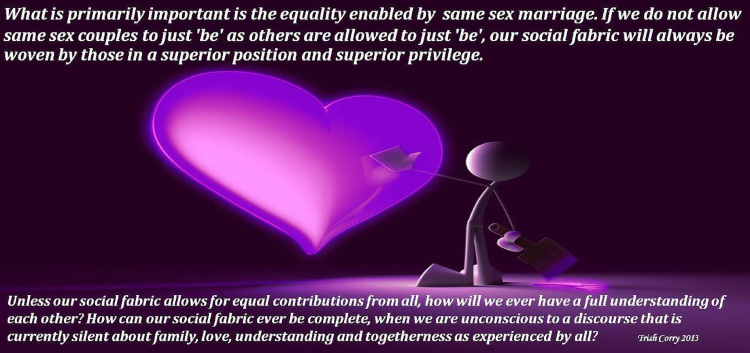
I have hope that this new inclusive and holistic society is well on track to emerge. However, I do not believe it will be in the term of this Government or if this Government is returned to office.
On April, 26, 2015 Tanya Plibersek Deputy Leader of the Opposition of the Australian Labor Party announced that she would be pushing the Labor Party for a binding vote on Marriage Equality and ending the choice of a conscience vote for the party. Plibersek’s argument is that Marriage Equality is a case for discrimination and the Labor Party is the Party opposed to discrimination. On Monday 1st June, 2015, Bill Shorten, Opposition Leader introduced a bill to parliament which proposes to alter the Marriage Act to define marriage as between two people. Tanya Plibersek seconded the Bill. The reason I do not believe that marriage equality will exist under the Abbott Government; is that his Government responded to this bill with contempt, through their silent boycott and absence from the chamber. Every member of the Coalition Government purposely being absent during the reading of this bill, indicates a lack of support for marriage equality and their overwhelming attitude that marriage equality and the rights of LGBTQAI people are irrelevant and are not worthy of their time in Parliament.
Tanya Plibersek believes that the vote should be binding within the Labor Party. As a member of the Labor Party; I fully support this. I support this for the reason that it is discrimination. I listened to Anthony Albanese (Albo) on ABC Qanda on 1 June and he indicated in his response we need to tolerate and respect the views of others to bring them along with us. I question whether this is a necessary patience, or a subconscious accommodation for the class of people who understand discrimination well enough in other contexts; but not when it involves stamping out discrimination for something they fear. The same class of people who use religion and/or prejudice as a shield to ward off progress. As a progressive, I do not feel I need to respect groups or individuals who actively fight against progress and who uphold discrimination.
To me, asking me to respect people’s opinions against marriage equality, is like asking me to respect people who are for racism, ableism and sexism. I don’t respect that. It is not a question of conscience. It is a question of enabling discrimination.
I look forward to a world, where I am not asked or expected to respect people who actively uphold discrimination and who stifle progress.
What are the arguments for marriage equality and discrimination?
Finally, I would like to end this article with research I have completed for an earlier 20103 blog post. I want to re-post it here as I believe it supports Tanya Plibersek’s stance that the Marriage Act in its current form, is discrimination. NB: This research was originally conducted with a specific focus on women and marriage equality. It is not my intent for the purpose of this section to exclude others.
Discrimination against women, through lack of legislation supporting marriage equality.
Although both men and women are discriminated against through lack of legislation supporting marriage equality; my focus at this point is to discuss points of discrimination, particular to women. I will address two areas, discrimination through legislation and discrimination by default through exclusion in society. The Subsection 5(1) of the Marriage Act 1961 defines marriage as ‘…the union of a man and a woman to the exclusion of all others, voluntarily entered into for life.’ The definition of the marriage act, merely states that this is a union voluntarily entered into for life. There are no specific parameters which specify what a union means. This is defined in Mary Case’s journal article, “What feminists have to lose in same-sex marriage litigation’2
A marriage certificate now allows heterosexual couples to have an open marriage, to live in different cities or in different apartments in the same city, to structure their finances as they please, without having their commitment or the legal benefits that follow from it challenged (p. 1203).
As there are very little restrictions relating to the private behaviours of the marital union, this act is discriminatory purely on the grounds of sex. This is only for persons who identify with having physical, hormonal or genetic features that are distinctly characterised as male or distinctly characterised as female. Therefore, marriage as defined as a union between a man and a woman, itself is discriminatory based on sex alone.
Women are discriminated within this act as it focuses on ‘sex’ and not ‘gender. This act excludes all persons who identify with a gender, that isn’t normative to their physically or biologically recognised ‘sex’. This act discriminates against all persons who identify as inter-sex. This Act excludes all persons on the grounds of sexual orientation.
Under the federal Sex Discrimination Act 1984 it is illegal in Australia to discriminate against a person either directly or indirectly on the grounds sexual orientation, gender identity and intersex status. 3
Women are also discriminated against, through legislation informing a society, which excludes understanding and valuing the experiences of unions that are not specifically between a heterosexual man and woman.
Various academic journals discuss that marriage is ingrained in the patriarchal notion that women are subordinate in society. Although this notion is not as entrenched within our whole society today; a quick search of Google for ‘subordinate wife’ will return over six million hits, with a high volume supporting the subordination of women/wives, particularly in a religious context. Through legislating marriage as it currently exists, many women are discriminated against and are exempt from marriage, simply because they choose not to have a union with a man and some because they view marriage as placing women in a subordinate role to men.
Mary Case also highlights in her article, that before becoming pope, Joseph Cardinal Ratzinger advocated for a normative view on gender in relation to subordination of women. This is an excerpt of his 2004 Letter to the Bishops of the Catholic Church on the Collaboration of Men and Women in the Church and in the World.
“This theory of the human person, intended to promote prospects for equality of women through liberation from biological determinism, has in reality inspired ideologies which, for example, call into question the family, in its natural two-parent structure of mother and father, and make homosexuality and heterosexuality virtually equivalent, in a new model of polymorphous sexuality… While the immediate roots of this second tendency are found in the context of reflection on women’s roles, its deeper motivation must be sought in the human attempt to be freed from one’s biological conditioning. According to this perspective, human nature in itself does not possess characteristics in an absolute manner: all persons can and ought to constitute themselves as they like, since they are free from every predetermination linked to their essential constitution.”
For Australia to move forward, we need to eradicate the stigma by enabling marriage equality for all. It stands to reason that the existence of ‘unions’ and the ‘recognition of same-sex partnerships has not eradicated the stigma which forms the basis for the opposition to marriage equality. The only way forward is to use legislation as a tool to reform society, which will in turn see marriage equality as a lawful and accepted norm in our society. There needs to be a Golden Ticket to allow us access into this new world and this Golden ticket is the Bill presented by Bill Shorten and seconded by Tanya Plibersek to amend the definition of marriage in Australia and the new world is the world which includes marriage equality for all.
“Stigma is a process by which the reaction of others spoils normal identity.”
―Erving Goffman
Originally Published on Polyfeministix
- Gottschalk, LH 2007, ‘Coping with stigma: Coming out and living as lesbians and gay men in regional and rural areas in the context of problems of rural confidentiality and social exclusion’, Rural Social Work & Community Practice, vol. 12, no. 2, pp. 31-46.
2. Case M, 2010, ‘What feminists have to lose in same-sex marriage litigation’, UCLA Law Review, vol. 57, no. 5, pp. 1199-1234
- Sex Discrimination Act 1984
Like what we do at The AIMN?
You’ll like it even more knowing that your donation will help us to keep up the good fight.
Chuck in a few bucks and see just how far it goes!
Your contribution to help with the running costs of this site will be gratefully accepted.
You can donate through PayPal or credit card via the button below, or donate via bank transfer: BSB: 062500; A/c no: 10495969

